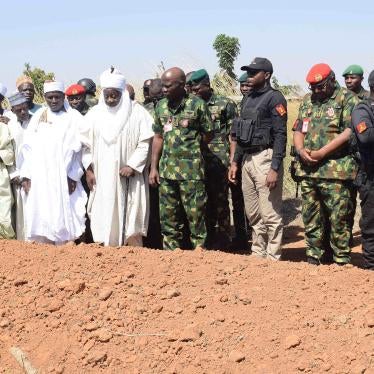(Johannesburg) – Mozambican police have committed widespread abuses against journalists and civil society activists that could seriously impair their work ahead of elections scheduled for October 9, 2024, Human Rights Watch said today.
The authorities have rarely investigated formal complaints of harassment, threats, physical assault, and arbitrary arrest and detention targeting those covering election activities.
“The Mozambican authorities’ failure to seriously investigate attacks on journalists and civil society activists is escalating the climate of fear in the country,” said Allan Ngari, Africa advocacy director at Human Rights Watch. “The authorities should take urgent measures to end these abuses and foster a safe environment for journalists and activists to work.”
Between August 8 and September 9, Human Rights Watch interviewed 32 people in Maputo, Nampula, Zambezia, and Cabo Delgado provinces. Interviewees included journalists, human rights activists, political leaders, and a police spokesman.
In recent months, the authorities have disrupted opposition party campaign meetings and other election related activities. Security forces have often broken up peaceful protests and those journalists and activists arrested have been detained for prolonged periods without charge.
Rui Minja, a journalist with the private television station TV Sucesso, based in the northern province of Cabo Delgado, said that at about 2 a.m. on August 24, a day after he published a report about police disrupting an opposition campaign event, he received an anonymous call from a man who addressed him by name and instructed him to look out the window. Minja said he saw a white Toyota car, without a license plate and with several people inside, parked in front of the gate of his house.
“As soon as I saw the car, I panicked, hung up the phone, and [then] texted fellow journalists, and also called the police,” he said. “When the police officers arrived, the car was no longer there, but they found a police hat by the gate.” A few days later, Minja received another call from someone he believed to be the previous caller, who told him that the people in the car “had been sent to kill him” and that “he should abandon his camisola (jersey),” which Minja understood to be a reference to his job. He said that on September 3, unknown assailants broke into his house while he was not at home. The intruders damaged the main entrance door and searched the house’s bedrooms, but did not take anything with them.
Sheila Wilson, a journalist and activist working with the Maputo-based Centre for Democracy and Human Rights, said that on June 4, police arrested her while reporting live from a protest of former secret service agents over alleged nonpayment of pensions. She said the officers grabbed her, threw her under the seat of a police van, and took her to a police station, where she was held incommunicado for more than five hours before being released.
The same day, five unidentified men grabbed Laves Macatane, a reporter, and Hélder Matwassa, a camera operator, from the private television station STV. The attackers tied the journalists’ hands and pushed Matwassa to the ground, according to the Committee to Protect Journalists. The journalists said that their assailants ran through a police security cordon and left in an unlicensed Toyota vehicle without being questioned or chased.
Plainclothes police officers detained Jota Pachoneia, a political activist based in the northern Nampula province, when he was leaving his house for work around 4 a.m. on February 9, days after he recorded and shared on social media a video criticizing Mozambican President Filipe Nyusi. He was released three days later, without charges, after the Mozambique Bar Association intervened. Pachoneia told Human Rights Watch that during his detention, he was held incommunicado and deprived of food and water.
The Media Institute of Southern Africa (MISA) reported that attacks against Mozambican journalists tend to increase during election years. The group recorded an increase in attacks from 11 cases in 2022 to 28 last year. Most were related to the October 2023 municipal elections, which were marred by a police crackdown on the opposition. Ernesto Nhanale, MISA’s secretary general, told Human Rights Watch that those responsible for these abuses were mainly politicians, government officials, and the police: “Election [in Mozambique] is a very sensitive process that has led to volatility and violations against journalists.”
The Mozambican authorities have yet to prosecute the alleged perpetrators of attacks included in MISA’s 2023 report, despite formal complaints lodged with the relevant authorities.
A police spokesman, Leonel Muchina, told Human Rights Watch by phone on September 9 that: “The Mozambican police take very seriously the work of journalists and are working hard to investigate abuses against them.” He did not provide details of these investigations or a date at which they would be concluded.
“The media and civil society actors need to be able to do their job without fear of reprisal for Mozambique’s October elections to be credible,” Ngari said. “Mozambique’s partners should press the government to publicly condemn these attacks and commit to protect media rights and an open civic space during and beyond the election periods.”







